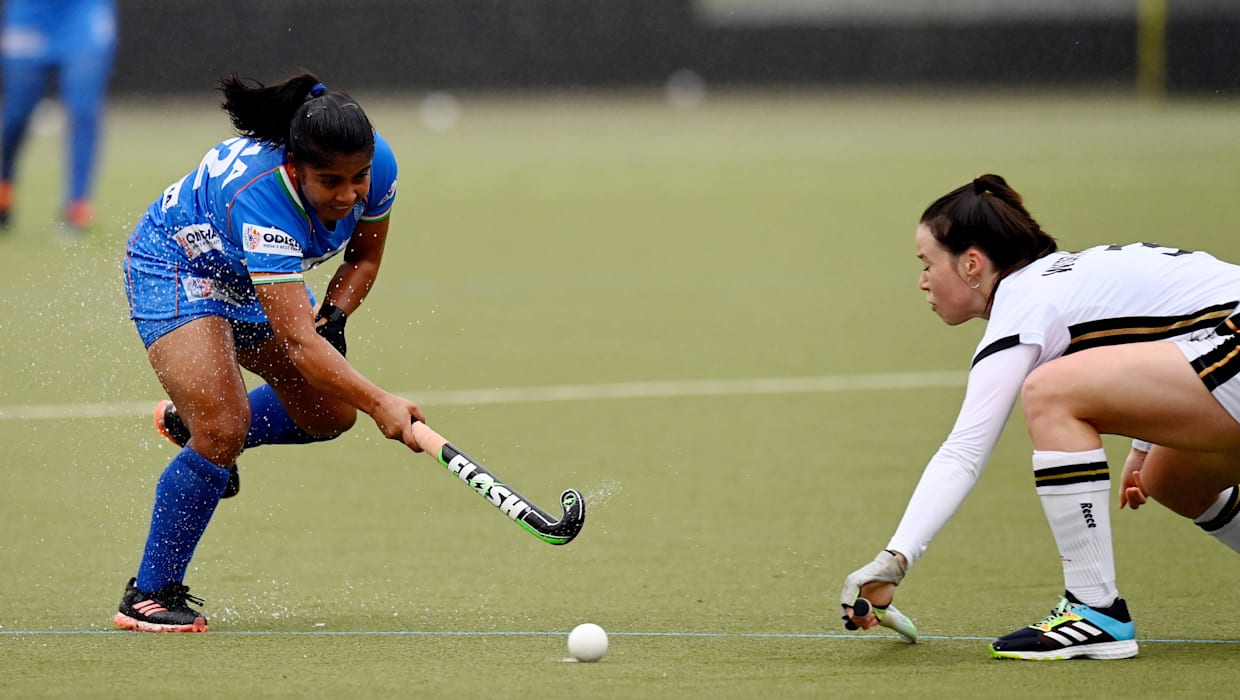News for 19 May 2021
All the news for Wednesday 19 May 2021
Swanny calls time on Kookaburras career
Decorated and long serving Kookaburra Matthew Swann has announced his retirement from international hockey, ending a long and distinguished career that has spanned 13 years.
An Olympic bronze medallist, dual Commonwealth Games gold medallist and dual World Cup winner, Swann finishes with 204 appearances and seven goals for his country.
But more significantly Swann leaves a legacy on the Kookaburras and Australian men’s hockey at the highest level from the time he debuted in 2009.
The 32 year old had planned to retire after Tokyo 2020, however the 12 month postponement due to COVID and subsequent timing of the Games has transpired against him competing at a third Olympics.
Swann’s wife Roos is due to give birth to their first child on 8 August, the day of the Olympic Closing Ceremony.
With athletes required to quarantine for two weeks upon arrival back to Australia, Swann has put family first and decided to call an end to his time with the Kookaburras.
He trained with the Kookaburras squad for the final time today ahead of the Kookaburras departing on Friday for a four-match series against New Zealand.
Admitting disappointment at how circumstances panned out, Swann said it is something he has spent a long time deliberating on.
“This was a decision that was made over the course of 4-5 months,” said Swann.
“With Roos and I having our first child, we were hoping that quarantining would change or maybe the situation and state of COVID globally wouldn’t be as dire as it is at the moment.
“It is sad but I will be cheering the boys on and thinking about being there, but at the end of the day I have made a decision that I think is the right one for my family.
“In ten years I’m going to look back and still believe I made the right decision to be there for Roos, even though I’m not going to be there for my Kookas family which is sad. But everyone has been fully supportive.”
“We tried a lot of different options and thought about ways we could make it work but unfortunately in the end the timing just wasn’t going to work out.”
“I have been lucky to be good enough to play in such great teams and good enough to stay in such a great team over a 13 year period.”
Kookaburras Head Coach Colin Batch paid tribute to Swann’s tenacity and the contribution he has made.
“I know this has been a really difficult decision for Swanny because he would have loved to have finished with an Olympics but I know the decision he has made is the right one,” said Batch.
“Swanny is a real dynamo. You only have to watch him for five minutes to know that. He is well respected and well loved by the group.”
“He goes at 100 per cent all the time and we will certainly miss that in our Daily Training Environment.”
“We wish him and Roos all the best with not only their immediate future but with their careers and as they start a family.”
Hockey Australia President Melanie Woosnam thanked and congratulated Swann on his lasting imprint on the sport.
“Matt has been an outstanding contributor to Australian hockey over an extended period and has embodied everything that makes our national teams so successful on the world stage,” said Woosnam.
“On behalf of everyone in the Australian hockey community, I thank Matt for everything he has done for our sport and for representing our country with distinction, pride and professionalism. We wish him and Roos all the best with their future and the exciting chapter that awaits them.”
The pint-sized defender grew up playing hockey in the regional Queensland city of Mackay before going on to become one of Australia’s best hockey players.
Batch said Swann’s hockey journey importantly proves it does not matter where you come from.
“Being from Mackay, Swanny has shown that you can make it from anywhere,” said Batch.
“He has been a great example of perseverance and where it can take you.”
Matthew Swann File
DOB: 16 May 1989
Place of Birth: Gympie, Queensland
Position: Defender
Playing Number: 20
Kookaburras appearances (goals): 204 (7)
Kookaburras Cap Number: 381
Kookaburras Debut: 19 October 2009 v Malaysia
Team Honours/Awards
Champions Trophy Winner 2009, 2010, 2011, 2012, 2016, 2018
Commonwealth Games Gold Medal 2010, 2014
World Cup Winner 2010, 2014
Olympic Games Bronze Medal 2012
World Cup Bronze Medal 2018
FIH Pro League Champions 2019
Personal Honours/Awards
FIH Young Player of the Year 2011
World All Star Team 2011
Tournament History
Olympic Games 2012, 2016
World Cup 2010, 2014, 2018
Commonwealth Games 2010, 2014
World League 2015, 2017
Champions Trophy 2009, 2010, 2011, 2012, 2016, 2018
Oceania Cup 2011, 2017, 2019
FIH Pro League 2019, 2020
Other information
* Made his 200th appearance on Australia Day last year against Belgium in Sydney.
* Had a stint playing in the Netherlands’ Hoofdklasse league for Bloemendaal where he helped them win the Euro Hockey League, and the Hockey India League for the Mumbai Magicians and Dabang Mumbai.
* Took time away from the game in 2018 to focus on his professional career at PwC.
* Named 2019 Hockey Queensland Player of the Year.
Hockey Australia media release
Matthew Swann retires as decorated Kookaburra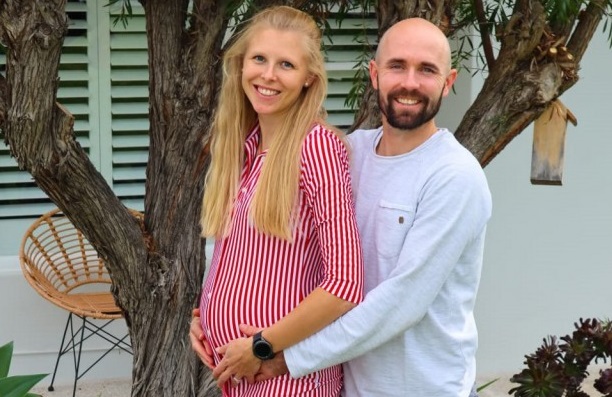
Matthew Swann's wife is expecting on day of Olympic closing ceremony
Matthew Swann was hailed as a Kookaburra “dynamo” after he announced his international hockey retirement following a decorated 13-year career.
After debuting in 2009, double World Cup winner Swann finishes with 204 caps and had planned to retire after Tokyo 2020 and a third Olympic campaign.
However Swann’s wife Roos is due to give birth to their first child on Aug 8, the day of the Olympic Closing Ceremony.
With athletes required to quarantine for two weeks upon arrival back to Australia, Swann has put family first and trained with the Kookaburras squad for the final time on Wednesday ahead of the Kookaburras departing for a four-match series against New Zealand.
“This was a decision that was made over the course of 4-5 months,” said Swann. “With Roos and I having our first child, we were hoping that quarantining would change or maybe the situation and state of Covid globally wouldn’t be as dire as it is at the moment.
“It is sad but I will be cheering the boys on and thinking about being there, but at the end of the day I have made a decision that I think is the right one for my family.
Kookaburras coach Colin Batch paid tribute to Swann’s tenacity in a distinguished career.
“I know this has been a really difficult decision for Swanny because he would have loved to have finished with an Olympics but I know the decision he has made is the right one,” said Batch.
“Swanny is a real dynamo. You only have to watch him for five minutes to know that. He is well respected and well loved by the group.
“He goes at 100 per cent all the time and being from Mackay, Swanny has shown that you can make it from anywhere.
“He has been a great example of perseverance and where it can take you.”
SIGN UP for The Hockey Paper’s returning newsletter: Promotions, exclusives and our best coverage
The Hockey Paper
Matt Swann - One on One
Gold medals, individual accolades, over 200 internationals. Matt Swann retires from the Kookaburras as one of greats of Australian men’s hockey.
While it may not have been a fairy tale finish due to circumstances largely determined by COVID-19, Swanny brings to a close a chapter and a time with a team that he has spent over a third of his life representing.
Upon announcing his retirement from international hockey, Swanny took some time to reflect on his Kookaburras journey and decision to draw the curtain on a marvellous career.
How tough was it to make this decision to retire? There must be an element of disappointment not having the opportunity to try and win an Olympic gold medal with the current group?
MS: “100 per cent but it wasn’t a rushed decision. It was a decision made over 4-5 months. With Roos and I having our first child (due on 8 August) we were hoping that quarantining would change or maybe the situation wouldn’t be as dire as it is at the moment given the state of COVID globally. I will be sitting there cheering the boys on and thinking about being there, but at the end of the day I have made a decision that I think is the right one for my family. In ten years down the track I’m going to look back and know I made the right decision, and although I’m not going to be there for my Kookas family everyone has been full supportive.”
What does it meant to you to have played over 200 games for the Kookaburras?
MS: “It feels pretty incredible to be honest. When I played my 200th game I couldn’t believe I was only the 20th player to do it. The amount of tournament wins I have had in those 204 games is pretty amazing when I think about it. I have been lucky to be good enough to play in such great teams and good enough to stay in such a great team over a 13 year period.”
As a boy from Mackay you have had an amazing career with the Kookaburras. Did you have thoughts about going on again with the Kookaburras next year and possibly thinking about Paris 2024?
MS: “Whenever we (the Kookaburras) have a cultural meeting together and every individual is asked what the most important thing is to them, family is the answer by the majority. From a longevity perspective, the way I’m going now there would be no issue with me going on to try for the next Olympics but there are so many factors to consider.
I was already struggling to balance hockey with my work and then you add a child to that, no family support in Perth and it becomes a bit overzealous. I think my body has been getting better as I’ve got older but you have to weigh up what you have to give up.”
You had more than your share of injury niggles throughout your career. What was the biggest injury setback you had?
MS: “I broke my foot and it was the most difficult injury I had to come back from. It was such a massive trauma to my foot. I lost a lot of muscle on my leg from being in a cast for four weeks on crutches. From a long injury point it was definitely the most frustrating.”
Did you ever have thoughts about whether it was all worth going on?
MS: “I also had a stress fracture in my right tibia and that one also took an eight month period to finally settle down. That was when I was 24. Then when I got over that I broke my foot and it makes you question why are you putting your body through so much for a couple of tournaments.”
Looking back, did you think that you would still been playing for the Kookaburras and in such great form at this point in your career?
MS: “I’m not sure. I was probably most worried in a 12 month stretch before the 2016 Olympics where I had a few soft tissue injuries. Brendyn Appleby (Kookaburras Strength & Conditioning Manager) came in at that stage and really restructured my whole gym program and then I had a really good run with my body.”
What have you loved most about being part of the Kookaburras for so long and what are you going to miss the most?
MS: “It’s probably the day to day training. Being in the changerooms before training, there’s always something new that the guys are talking about or a new joke doing the rounds and the boys have a bit of a laugh.
Then after training when you are doing your recovery and having some banter, I think that is the aspect of it that I am going to miss most. And you also have this sense of purpose when you wake up in the morning. You’ve got things you want to try and tick off in every training session and it gives you that drive every single morning. Obviously when you don’t have a good training session it’s not the greatest but it’s good to have something outside of hockey where you can go and do something else and forget about it for a while.”
So you had a real desire to be better every day throughout your entire career?
MS: “It’s obviously hard to do that over such a long period of time and there are days when you wish you didn’t have to get up at 5am and go to hockey and it’s still dark. But there is something about 25 or 30 guys all having a common goal and having fun while you are doing it. It makes it special and very enjoyable. You go away on tournaments and if you do well you have some of the most memorable times that will stay with you forever. But I think the thing I will miss the most is that day to day environment.”
Speaking of memorable times, are there any that stick out?
“There are a lot but from a team erspective, it would definitely be the 2014 World Cup where we beat Holland in Holand. It was pretty special to have a tiny contgnetn of green and gold sitting in the stands when the rest of he stadium was a wave of orange. To win in that environment in the manner that we won was pretty ridiculous and something here you go ‘wow what an amazing team and World Cup that was.’ There was something about that team and tournament where everything clicked into place and each player knew their role so well. It was incredible to be a part of.”
Are you going to pop your head into training every now and then before the guys head to Tokyo?
MS: “I’m only a phone call away for any of the guys who want a chat but it’s largely a reason I’m finishing up on the 19th of May so we can get over to Queensland to set up and have the baby over there. We are driving from Perth to Mackay and leaving on Sunday so it has all happened really quickly.
The last two months I’ve been focusing on really trying to help the likes of Jake Harvie, Josh Simmonds and Dylan Martin (who play similar positions) to try to give them as much advice and support as possible.”
You are not the biggest guy, especially in comparison to a lot of the defenders playing the game at international level. But you really managed to hold your own?
MS: “From a playing perspective I was probably one of the first defenders who was small to come in and play at the back. Normally defenders are quite big fellas so it was a bit strange seeing a kid who weighed about 50kg playing back there.”
Do you have plans to move back home to Mackay in Queensland or are you settled in Perth?
MS: “We’re settled in Perth. It is home and it has given a lot to us and we have a lot of good friends here. I’ve been in Perth since 2009 so for now the life that we have built in Perth is really good and we plan to stay.”
Is there anyone you would like to thank or acknowledge now that you have decided to hang up your stick on the international scene?
MS: “I want to thank my wife Roos who has been amazing during the majority of my career. My family and friends who have been supporting me from the very beginning. Specifically, my parents who have given up so much time to give me the opportunity to make it to the highest level.
The Mackay Hockey Association for all their support during my junior days. The Queensland Academy of Sport and Hockey QLD who supported me to be able to make that final step into the National Program. Hockey Australia and the High Performance Unit – thank you for all the support throughout out my Australian career.
Furthermore, I would like to thanks all the coaches, clubs and associations that have had an impact on my life and career. I am forever grateful for the opportunities, encouragement and support that I have received from you all.
Also, I can’t speak highly enough of the people at PwC and what they have allowed me to do balancing a professional career and professional level hockey. I can’t thank them enough. They have given me heaps of support and they are also more than happy to allow me time to reset after what has been such a big part of my life with the Kookaburras.”
It’s a quality chapter you’ve written and an exiting one you are about to start. Congratulations Swanny.
MS: “Thanks. I’m really looking forward to it.”
Hockey Australia media release
Dual career benefitting Charter on and off the field
To celebrate and acknowledge National Careers Week, Kookaburras goalkeeper and qualified Engineer Andrew Charter outlines the value of planning for and having dual careers.
Charter is a prime example of how high performance sporting pursuits can go hand in hand with a professional work career and the benefits that can be reaped from both.
An Asset Integrity Management Consultant for BHP, Charter’s journey from university to employee highlights that athletes do not have to wait until their sporting career comes to an end before needing to find their feet after sport.
Olympian, World Cup winner and dual Commonwealth Games gold medallist among a host of other achievements, these have been accomplished while Charter has been studying or working.
Having graduated with a Bachelor of Engineering, Mehcancial Engineering, plus a Master of Oil and Gas Engineering at The University of Western Australia, Charter’s current profession sees him assist in the coordination, design, development and integration of high-end solutions that add value to the business. View Andrew’s full LinkedIn account.
Hockey Australia Athlete Health & Wellbeing Manager Rohan McHugh caught up with the Kookaburras’ number 30 to explore his dual career journey and thoughts on the importance of having something aside from sport.
Why do you think talking about National Careers Week and successful stories of athletes with dual careers during and post their sporting career is important?
AC: “I think particularly with Olympic sports which are not financially remunerated, it’s important to reiterate the value of having something outside your sport. This is particularly for young athletes. You see them come in and all they want to do is their sport. But you need to prepare yourself for life after sport while you’re doing it because in the future it will take out a lot of the stress.
I’ve been in the national men’s hockey program for ten years, have set myself up professionally and now I don’t have to stress about what I do at the end of my sporting career. A lot of guys who don’t work towards a career during their sport get towards the back end and start to stress and ask themselves things like, ‘do I need to do a trade now, do I need to do a degree?’ This ends up creating issues with athletes’ transitions out of sport.
There are also a lot of benefits of having something outside of your sport. It gives you an escape or release. University and work was an escape for me and meant that I wasn’t constantly thinking about hockey and vice-versa. They both complement each other really well and I think that’s something athletes need to think about.”
What is your definition of dual career for an athlete. What does ‘dual career’ look like?
AC: “It was a bit ambiguous initially. Sport is a career and it is important how much effort we put into it, but the second career is something you are striving to achieve. It doesn’t necessarily mean you have to have employment at the time, it can be building your pathway to employment or a professional career or trade. It’s not just having a career, it is having a pathway to it.”
When you started studying at university did you think it was going to be possible to balance study and work with the demands of hockey?
AC: “I started uni in Canberra and then transferred over to WA when I moved over for the national squad. I was doing a Bachelor of Engineering and it took a little while to find the rhythm and how many units I could do. It requires flexibility from your side and also from the university. The elite athlete university program was very good for me in terms of being able to drop units, reschedule exams or have some more freedom with online learning.
Engineering is a four year degree but it ended up taking me about nine years to complete and graduate. Engineering opens up a lot of doorways, it shows you have the ability to problem solve and find solutions.
I took a year or two off to focus on hockey and I was probably the poorer for it because it had a negative impact on my hockey career. I went back to do further study and then just after the Rio Olympics I transitioned into a consulting role for a mining company, which is what I have been doing for the last five years.”
Has your employer been flexible and understanding?
AC: “They were understanding when they employed me. I guess the biggest learning and the thing I would try to preach to everyone is that you have to be clear with your employer. There’s no point hiding a tour that you’ve got to go on or hiding team hockey meetings and then the day before telling your employer that you’ll be late in at work tomorrow.
They are doing you a favour by employing you and you’ve got to give back that respect in return. If you can tell them what your schedule is as early as possible it will make them much more comfortable. I know the times I have had issues with clients has been when things have been popping up last minute because they can’t plan for that.”
What have the Kookaburras done to support your job career?
AC: “The Kookaburras are the epitome of flexibility for an Olympic sport in my opinion. In my whole time here since 2011 we have been able to train outside of work hours except for lead up to major tournaments. It has meant I’ve effectively been able to work or study on a full time basis for the majority of my career. They allow us to finish training at 8.30am and gym is usually scheduled around that as well. The support from an Athlete Wellbeing & Engagement standpoint has always been good and they are understanding when exams come up. I think the Kookaburras have always understood that having things outside of sport benefits the team overall. They are aware that if people are just hockey or sport centric, it can create a lot of other stresses.”
What advice would you give to athletes who are hesitant to jump into dual career for fear of it getting in the way?
AC: “For me it would be to give it a go. Don’t fear it. Everyone I know who is in a dual career, whether it’s studying or having a professional role, they see it as a benefit. Yes there is less financial stress but it is about going home and not just thinking about your sport all the time. You might have a poor training session but then you go to work and you don’t think about it. When I wasn’t in dual career, that training session would sit with me, so it gives you something else that you can excel at and have a good time doing as well as hockey.
It does seem like a lot of hard work if you haven’t done it and it might feel hard for the first few months when you are finding your feet, but there are plenty of people who have done it before and networks that can help you out.”
Hockey Australia media release
Injured Welten: ‘Almost certainly no European Championship’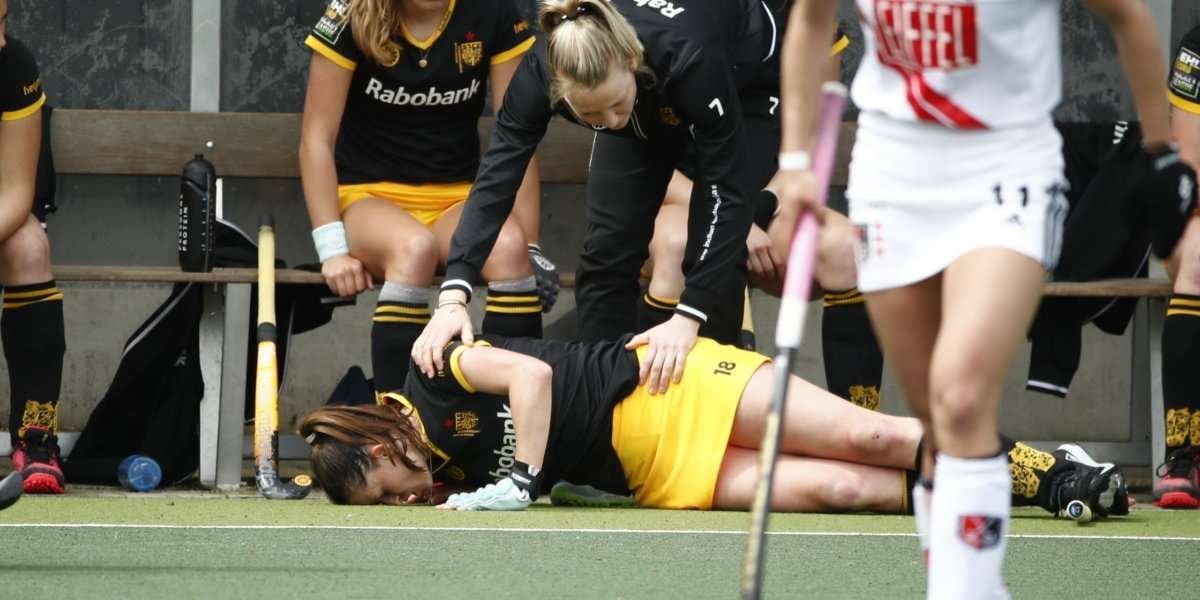
For Lidewij Welten, the brand new twentieth national title of Den Bosch has become one with a black edge. The 30-year-old attacker has an apparently serious hamstring injury from the exciting second final match with Amsterdam (1-0 win) . ‘The European Championship can almost certainly make a line,’ are her words to the NOS. 
Ireen van den Assem: ‘Glad that Raoul gave me the opportunity to sit on the couch’
Her name was on the scoresheet, but she did not play in the second and ultimately decisive game in the final of the women’s play-offs . Ireen van den Assem won her eighth national title, her last as a player of Den Bosch, at the expense of Amsterdam sitting on the couch in a tracksuit. A muscle injury kept her aside for the entire play-offs. “I’m glad Raoul gave me the chance to sit on the couch.”
Bloemendaal again the best: ‘from a rational point of view this one is more attractive’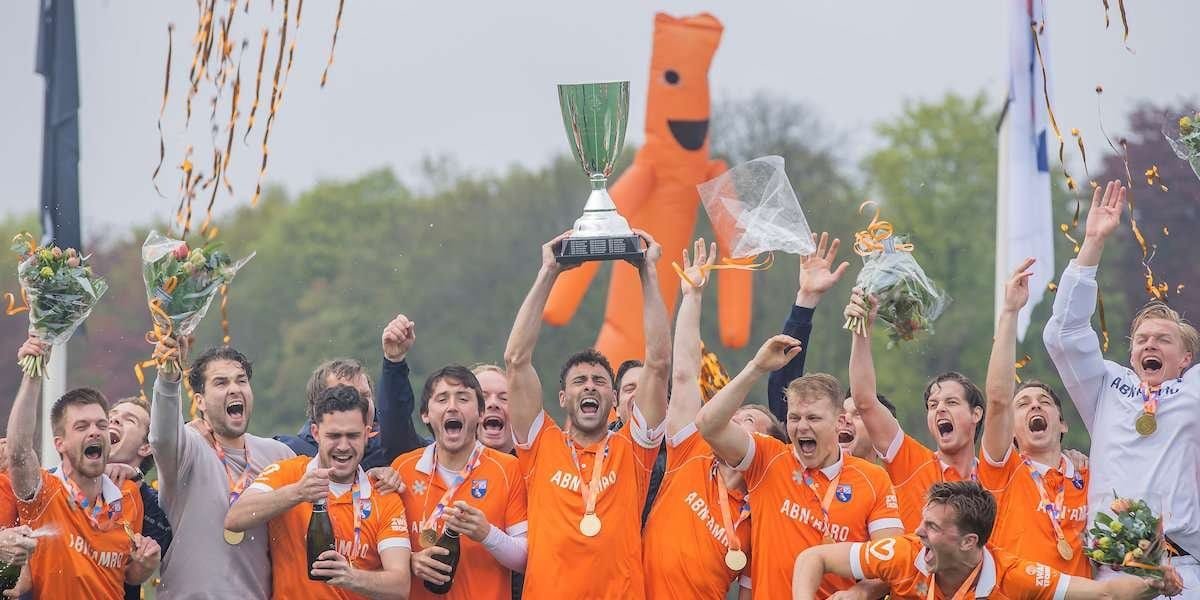
For the second season in a row, Bloemendaal can add a championship bowl in the already richly filled trophy cabinet. A title, number 21 in club history, that feels very different from that of 2019.
De Goede to swap Amsterdam for HGC next season.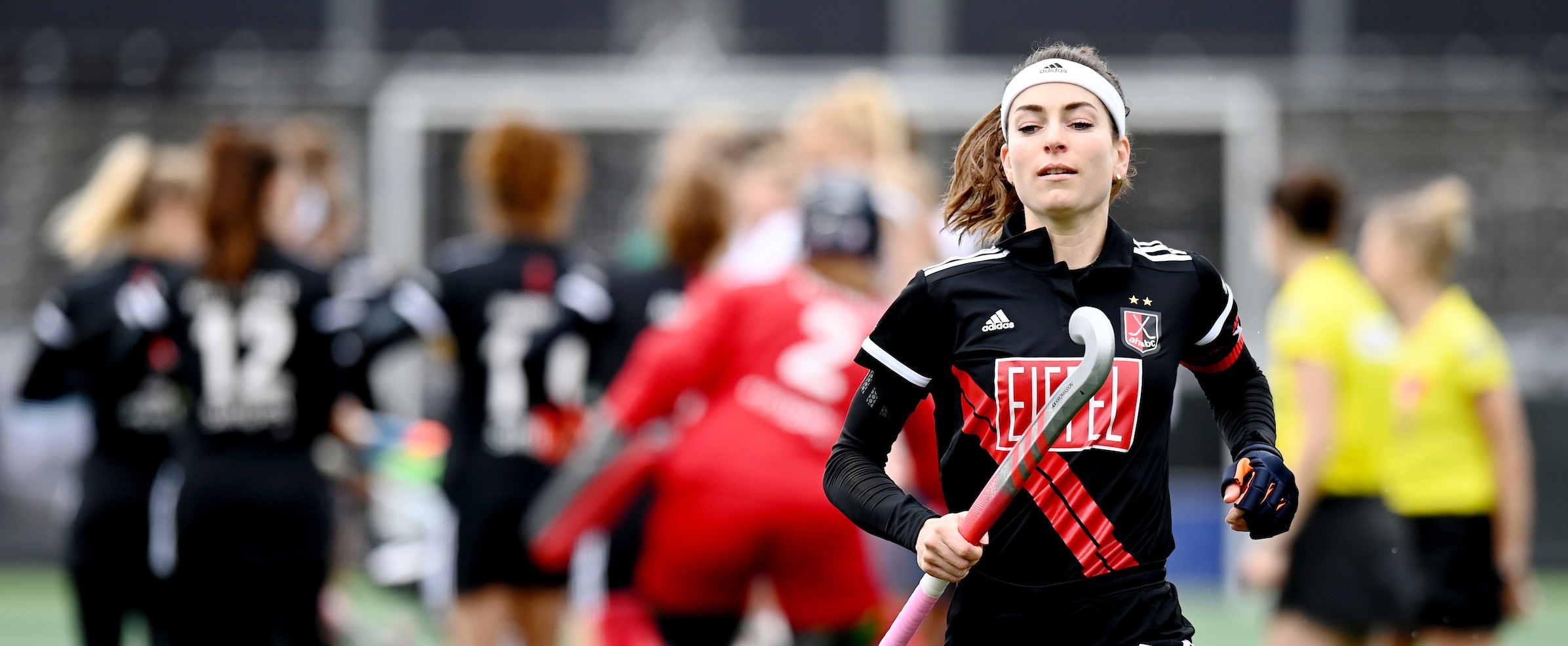
Two-time world player of the year Eva de Goede will make the surprising move next season from AH&BC Amsterdam to the HGC after ten years at the Wagener Stadium.
As such, the 32-year-old midfielder – and Dutch captain – moves from the runners-up in the national championship to a side that finished 11th this term, one place off relegation.
“I understand that this choice comes as quite a surprise to some people,” she explained to hockey.nl.
“I also have to let it sink in, now that the play-offs have just finished. But I have a very strong feeling that this is what I should do. I don’t see it as phasing out [my career]. I think this choice is good for my growth as a player and as a person.”
She had intended to retire following the original scheduling of the Tokyo Olympic Games and go travelling with her boyfriend Tim Drummond to the likes of New Zealand and Australia.
The pandemic, however, saw those plans postponed and, with the new schedule, she now intends to say her farewell after the 2022 World Cup, potentially in front of a packed house in her home country.
“In a full stadium is where I want to say goodbye!”
As for the move The Hague, she has been living with Drummond in the city for six months and is now keen to limit the commute.
“It would be wonderful to jump around my bike and be able to cycle to the club. I hope to be get extra rest so that, in addition to my adventure at HGC, I can also continue to concentrate fully on the Dutch team.”
De Goede joined Amsterdam in 2010 having begun her hockey with Phoenix in Zeist before moving briefly to Kampong in Utrecht.
At Amsterdam, she won national titles in 2013 and 2019 as well as two European Cups in 2014 and 2019.
She endured a frustrating end to her time with the club following a nasty injury sustained in the EHL Women’s FINAL4 which ruled her out of the Dutch playoffs.
“I look back with pride on the ten beautiful seasons I have been able to play hockey for Amsterdam. Amsterdam is a wonderful club where we have taken a huge step with Dames 1 in recent years.
“We have changed from a team that often lost against Den Bosch into a team that fought and seriously competed in the battle for the national title every year.
“I have the best memories of the two national titles we won. I am proud we have achieved that as a team. Unfortunately, Den Bosch stood out last weekend but I am very grateful to everyone within the club for the ten beautiful years. Partly because of Amsterdam, I have become the best hockey player in the world.”
Euro Hockey League media release
Midfielder Neha Goyal knows all about shouldering responsibility
The 24-year-old has overcome several obstacles and injuries to come within touching distance of her Olympic dream
By Deepti Patwardhan
Picture by Hockey India
As the defensive midfielder in the Indian women’s hockey team, which has sealed qualification for Tokyo 2020, Neha Goyal is adept at tackling dual roles and the added responsibility. The 24-year-old is no stranger to shouldering the extra burden.
When she was in fifth standard, Goyal accompanied one of her friends to a hockey academy in her hometown Sonepat, Haryana because she heard they would give her clothes and shoes.
“I didn’t have shoes at the time and the (government) school I was studying in used to provide us with the uniforms.” Goyal told Olympics.com during an interview.
“My family was quite poor. My father, who passed away a few years ago, was an alcoholic, most of the times he even wouldn’t be at home. My mom used to take care of the house all on her own. I wanted to improve the situation at home. So when my friend told me they give all these things I went to the hockey academy.”
Goyal’s mother used to work in a foam factory and try and do some odd jobs to provide for the family. One of the jobs comprised of stringing wires on bicycles and Neha, along with her two sisters, would help doing as much as they could since a very young age.
“We used to make maybe INR 1500-1600 (around 22 USD) per month,” Goyal recalled.
To ease the burden on her family, Goyal started taking hockey lessons diligently. One of the coaches at the academy was former India player Pritam Rani Siwach, who not only helped Goyal learn the basics but made sure she had the appropriate gear.
“She would provide me with hockey kit and give me money to buy shoes (PE canvas shoes which would cost Rs 50) if mine were torn.” Even when Goyal fractured her hand while playing, three years into her hockey journey, and had doubts over whether she would play again, Siwach was the one who restored faith in her.
“My mother has been the pillar,” said Goyal. “She was the one who encouraged me to play. She said she will pick up extra jobs or do whatever needed to be done to make sure I could stick with the sport.”
Goyal’s first break came in 2011, when she joined the Indian junior national camp on the back of impressive performances in the nationals for Haryana. A year later, she was drafted into the senior squad, a little too early perhaps.
“In the seniors, the work rate is a lot more and I couldn’t handle it in the beginning and sustained a leg injury in 2012,” she said. “I was out for almost a year because of that injury.” It was stop and start for the girl from Haryana, as her efforts of sealing her place in the senior India squad was once again thwarted by that injury.
“The bone in my foot used to swell; it was very painful,” Goyal said. “I went to a physio in Delhi. It was a little better. But after that since I was overage I was removed from the junior camp.” Goyal was pushed back to the fringes even as the Indian women’s hockey team made an appearance at the Olympics after 36 years at Rio 2016.
Despite losing her place in the Indian team, Goyal had some sort of financial security as she was employed by the Railway Sports Promotion Board by then. It helped her tend to her mother, who is frequently ill, and help with the wedding expenses of her elder sisters.
Another impressive performance in the senior nationals, in 2017, helped her get back into the team. She has earned 75 India caps so far and even scored nine goals.
“I missed the 2016 Olympics,” the midfield linchpin said. “I am very excited for my first Olympics (in Tokyo). Whatever happens, I will pour in my heart and soul to get that medal. Our team is very good right now, very fit too.”
Fitness has been one area where the Indian women’s hockey team has massively improved on since the last Olympic cycle. Goyal believes that even though the team returned winless from the tours to Argentina and Germany earlier this year, the gap between India and the top hockey nations in the world is decreasing.
“In my experience, there were the two best teams we have ever played against,” she said. “Having played them, we got an idea of where we stand. I feel the gulf isn’t as big as our ranking suggests (India ranked No 9 in the world). We matched them. But we definitely need to improve on our scoring power. We are working on that in the camp.”
The Indian national camp was recently rocked by a spate of Covid-19 positive cases, including captain Rani Rampal. But they are getting back on their feet. All the seven players and two support staff have recovered from the virus and completed their two-week quarantine on May 7.
“We have restarted practice,” said Goyal. “We are a little unfit, those who were affected by the virus had some weakness but we are pushing ourselves in practice again.”
With just over two months to go for the Olympics, the hockey team is focusing on all the areas in their control – training, fitness, nutrition—to give themselves a chance for a podium finish. Nutrition has been especially important for Goyal, who had gained some pounds, to get in shape.
“We are told to eat a lot of protein and colourful vegetables,” she said. It is a far cry from the time she, and her family, would be forced to eat rotis with pickles because they couldn’t afford to buy any vegetables and it's a privilege she doesn't take for granted.
Olympic Channel
SA men's hockey crowdfunding campaign
Back your hockey boys as they make their way to the Tokyo Olympics. 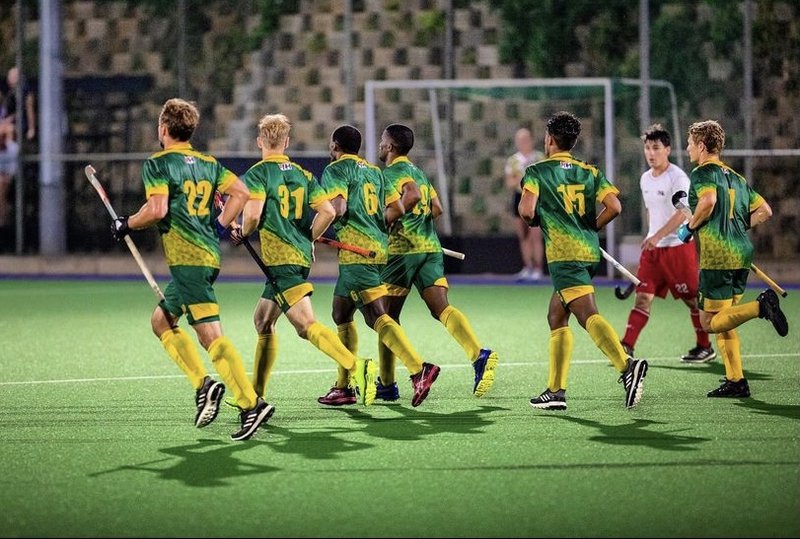
SA Men's Hockey @sa_hockey_man
Having qualified for the re-scheduled 2020 Tokyo Olympics, the SA men’s hockey team were required to launch their own crowdfunding campaign, in partnership with Matchkit.co, not only to increase the recognition of their brand, but to ensure that they had access to sufficient funding for their preparations and attendance at the games, without the players having to be personally responsible for paying their own costs.
The team, which is currently ranked 14th in the world and is fully transformed, with 50% black team members at playing level and 60% black representatives at management level, have always acquitted themselves to the highest level against some of the best hockey playing nations, which benefit tremendously from an abundance of resources, including financial backing, as well as players and staff who are full-time professionals, and thus able to focus solely on their sport.
Sky Tshabalala had the pleasure of talking to the coach Garreth Ewing.
Thankfully, the team has received a much-needed commercial boost through its partnership with the award-winning web-based platform, Matchkit.co, which has allowed them to launch a crowdfunding initiative, and thus given their cause the visibility it deserves. Matchkit.co seamlessly allows athletes to consolidate their existing social media accounts and connect with fans and sponsors, thereby allowing them to enhance their level of engagement, and thus better sustain themselves throughout their sporting careers through creating and monetising a brand for themselves.
Matchkit.co is a platform which is also used by Durbanite and professional bodyboarder, Ian Campbell.
While there is no doubt that the team have put in the necessary hard work to secure their participation in Tokyo, with many of the players juggling the challenges of full-time employment whilst also representing their country on the international stage, their ability to raise finds has so far been limited. The team are, however, remaining positive, and there is a lot of excitement in their training camp as they prepare to represent South Africa at the pinnacle of their sport. Hopefully, with your support, these outstanding young men will have the opportunity without having to carry their own costs in doing so.
Find them on their social media pages:
Instagram: @sa_hockey_man
Twitter: @SA_Mens_Hockey
East Coast Radio
As the Crow Flies – Canadian Women’s O55 Masters Team Kilometre Challenge
What started as a fitness challenge turned into a special year-long connection 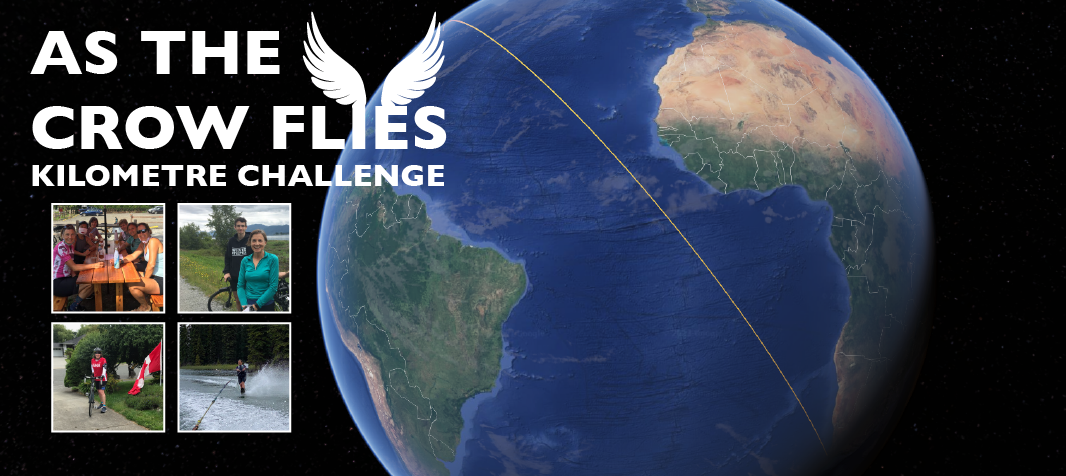
Maryanne Umbsaar has never felt more connected to a team — a team that never got the chance to step onto the pitch together.
Umbsaar was born in Calgary and played field hockey growing up in the B.C. Okanagan. She moved back to Calgary when she was 19 and went on a 25-year hockey hiatus until rediscovering the sport in her mid-40s. Fifteen years later, Umbsaar still plays with the Astros Hockey Club in Calgary and is now a member of the O55 Women’s Masters National Team.
The 2020 Masters World Cup was scheduled to take place in the fall in Cape Town, South Africa. Team Canada was going to send several teams over the varied masters divisions. When the COVID-19 pandemic swept the globe, however, everything changed.
Umbsaar and Clare Ford, age-group coordinators for the O55 team, decided they wanted to keep their group engaged, so on May 13, 2020, they launched the “As the Crow Flies: Kilometre Challenge.” — A virtual journey from Vancouver to Cape Town.
“We did not know how long the delay was going to be; we had no idea what was going to happen,” Umbsaar said. “We wanted to keep a feel of camaraderie going forward. I figured, if we aren’t going to travel to Cape Town in real life, can we travel there virtually.”
The concept was simple. Every time a player did any physical activity, be it walking, running, cycling or other, they logged the distance towards the communal total. Thirteen players from the O55 team joined the initiative to travel the 16,440 kilometres from Vancouver to Cape Town. They created a Whatsapp chat group to log the totals, and the team was off on their journey. According to Umbsaar, what started as a fitness challenge, became a year-long team-building exercise. 
Teresa Schwartz Mountain Biking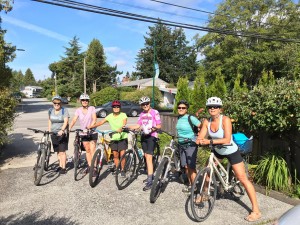
Team Cycle trip
Clare Ford and family cycling
What started as a fitness challenge became a motivating and connecting experience through a most difficult year. Photos Provided.
“We didn’t want to put any pressure, constraints or minimums. Whatever it was that people wanted to do, we’ll just keep adding to our tally,” she said. “Everyone has hung in there for more than a year.”
Ford, the co-organizer of the O55 Masters National Team, has been playing field hockey her whole life after growing up around the game in the UK. Her first Masters World Cup was in 2018 in Barcelona. She said masters hockey is the perfect avenue to keep competing while developing connection and camaraderie with her peers. Nowhere was the camaraderie more on display than during the pandemic with the As the Crow Flies initiative.
Thirteen players from the Women’s O55 National Team joined the Kilometre Challenge: Clare Ford, Lynda Lawrence, Marnie Schigas, Alanna Martin, Cathy Romans, Corrie Guraliuk, Eliner Maxwell-Smith, Heather Benson, Kelly Olsen, Sandra Chamberlin, Teresa Schwartz, Maryanne Umbsaar.
“It was very inspiring. I felt like I couldn’t let a day pass without logging some kilometres, whatever it may be,” Ford said.
The pandemic has affected everyone in different ways. But for many athletes, it meant staying off the field of play and keeping their distance from teammates. For Ford, this kilometre challenge kept her connected to her peers and opened the door for her to rediscover nature.
“It can be really sad not playing hockey, so [the kilometre challenge] was very important for us to all have a virtual space where we could touch base and stay motivated,” Ford said. “Whether it was doing the BCMC hike, walking up Grouse Mountain or running through Pacific Spirit Park with my dog; Just being in nature was really refreshing considering what was going on.” 
Teresa waterskiing
Maryanne- the other hockey
Anything could be submitted from ice hockey to kayaking and hiking and skiing. Photos provided.
The team walked, ran, paddle-boarded, swam, hiked, skied, kayaked and cycled the requisite 16,440 kilometres and ‘arrived’ in Cape Town on October 20, 2020. At that point, the group made the decision to keep the initiative alive and set a goal to attempt to circumnavigate the globe.
“We needed some stopping points, so we hit Melbourne — where the next Golden Oldies was supposed to be — then we added a pit stop in Hawaii…because everybody loves Hawaii,” Umbsaar said. “Now we’re going to Victoria.”
The team is currently floating somewhere in the Pacific Ocean en route from Honolulu to Victoria. They have accrued 37,556 kilometres to date. Umbsaar, who lives in Calgary said the team wouldn’t let the expedition stop in Victoria. Instead, the initiative will finish when they’ve reached Umbsaar’s doorstep. The final distance upon completion will be 40,765 kilometres. It’s quite the journey for a team that will never wind up taking the field together.
Umbsaar said that this project has become much more than a fitness challenge. Being the only Alberta-based team member, she has felt connected and included in the team from day one.
“We’ve been posting pictures of where we’ve been or what activity we’ve been doing,” she said. “It’s been the perfect format for us to stay connected. It’s been a great motivator…everyone wants to add to the total. We all feel that drive to contribute and support the team. I’m always thinking about how I can add a few more kilometres to that total.”
It’s stated that to circumnavigate the globe at the equator (the Earth’s widest point), the crow must fly 40,075 kilometres. And although this team will never take the field as this exact unit, they will have accomplished an amazing feat and have grown closer as friends and teammates.
They have 3,000km left to complete their goal.
Field Hockey Canada media release
Scotland withdraws from boys’ and girls’ EuroHockey U18 Championships in Valencia
Scottish Hockey has decided to withdraw its teams from the upcoming boys’ and girls’ EuroHockey U18 Championships in Valencia, Spain. EuroHockey has however confirmed the 2023 U18 EuroHockey Championships will be a 10 team tournament with no relegation this year, and with the top two from EuroHockey Championship II added for 2023.
At this time Scottish Hockey is sadly not able to commit to sending a team to Valencia given the current information available, and restriction levels. We feel we would be exposing our young athletes to an unnecessary risk, and placing a significant additional level of pressure and responsibility on a limited number of support staff.
Current Scottish and UK Government guidance advises against travel to Spain for all but essential purposes, and without the “elite exemption” granted to our senior high performance programmes, this activity would be deemed as leisure purposes and not recommended.
While Spain remains on the UK amber list for travel, we would be required to self-isolate for 10 days on return to Scotland, which poses additional problems due to other commitments for a number of players and support staff.
The obvious health risks presented by a positive test for Covid-19 at the tournament, along with the additional issues involved in the 10 day isolation process in Spain (potentially for players who may still legally be children) is of significant concern to us.
Scottish Hockey’s performance staff have been working hard in the background with our partners at England Hockey; Hockey Wales; and Hockey Ireland on plans to stage a 4-nations development series with all matches being played within the UK. Details will follow on the format of the tournament and venues for the matches once plans are finalised.
Scottish Hockey’s Head of Performance, Andy Tennant, said, “Clearly we are disappointed to not be sending our teams to Spain, however given current government guidance and putting athletes and support staff first, I am convinced we have made the right decision.
“We are also pleased that despite the tournament going ahead, EHF have taken the sensible decision to stage a 10-team tournament in 2023. This means no one will be relegated from A Division this year.”
He added, “As stated earlier we are working closely with our partners in the rest of GB and Ireland who are in the same position, to ensure our best athletes at under 18/19 level have the opportunity to access high quality competitive opportunities within our own islands this summer.”
Scottish Hockey Union media release
England Age Group Squads Announced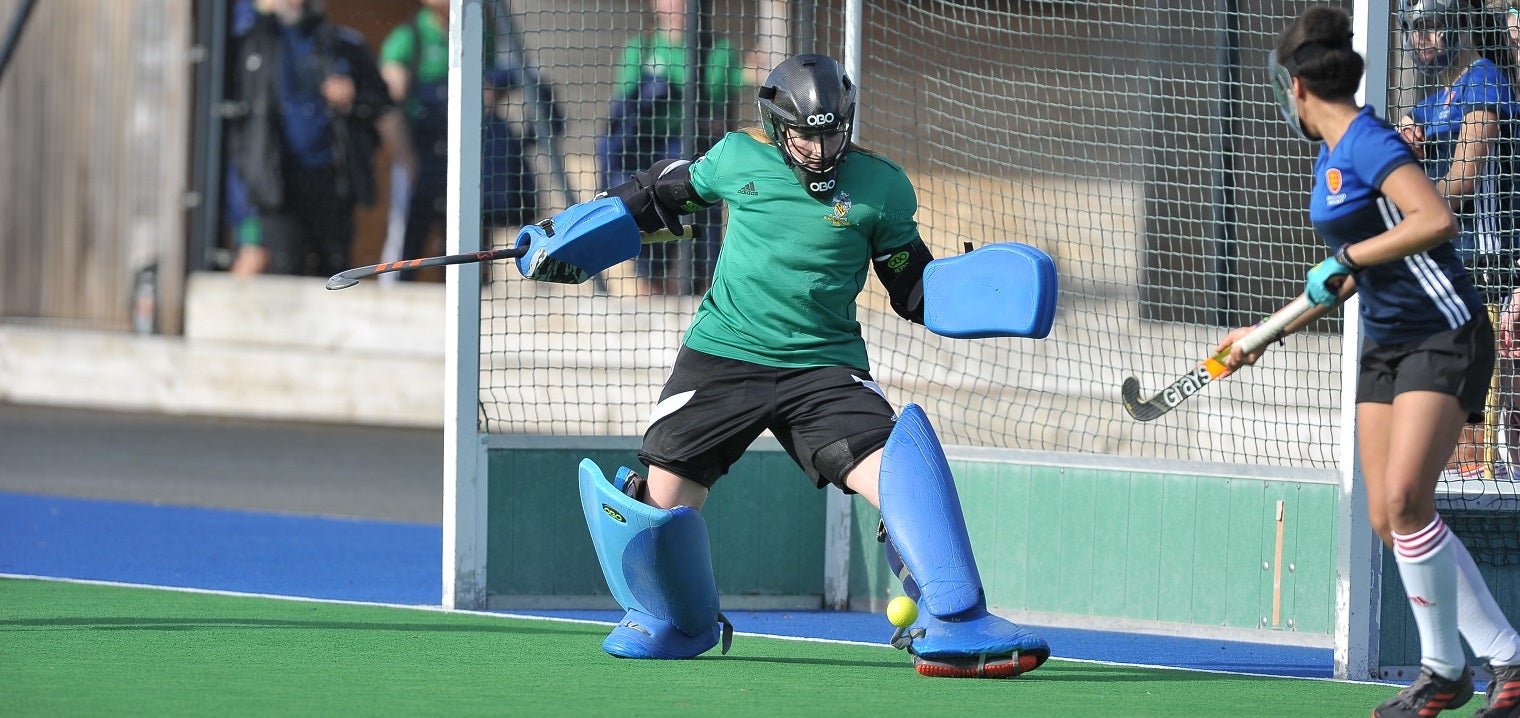
England Hockey is delighted to announce the U16 and U18 boys and girls who have been selected as part of the England Age Group Programme.
In what is a fantastic achievement for all those named, England Hockey would like to congratulate those players who have been taken forward in the final training squads for 2021.
Upon the announcement of those selected, Dieter Hill, England Hockey Junior Talent Development Manager, commented:
“This has been a year like no other, myself and the coaches have been very impressed with the quality of engagement from all players involved up until this point. Across the board the players have adapted to the challenges presented through COVID, maintaining positivity and enthusiasm for the technical and physical challenges.
“While the programme this year continues to be hampered by COVID uncertainty, the coaches and myself are determined to optimise experiences and exposure to assist in the development of performance habits and characteristics, best preparing the players for the path ahead.
“While a number of players have not been taken forward at this time, those players should take great pride in the fact they have been part of the programme up until this point. I also feel for a small number of players who have sustained long term injuries in recent weeks and wish them the very best for their recovery. Finally, I would like to place on record my thanks to all the parents, guardians and coaches who continue to support talented players in their homes, across the Player Pathway, clubs and schools.”
England Age Group Squads
England Hockey Board Media release
Repton School heads England Hockey age group selections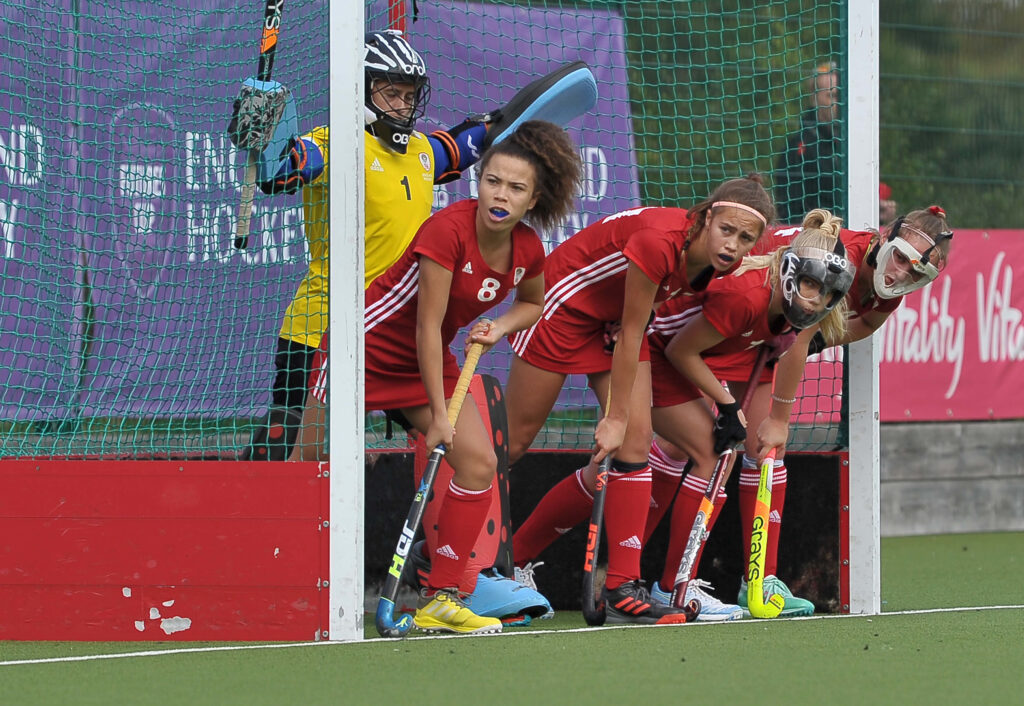
England Hockey announced under-16 and under-18 squads PIC: SIPPA
Repton School led the way following England Hockey’s announcement of its under-16 and under-18 boys and girls programmes on Tuesday.
Repton feature 16 students across EH’s junior age group programme, with Whitgift School and Surbiton High School seeing four students each make the grade.
There are places for grammar schools, with both Altrincham and Kingston seeing two places apiece. In all there are 102 athletes across the four squads.
Dieter Hill, England Hockey junior talent development manager, said: “This has been a year like no other, myself and the coaches have been very impressed with the quality of engagement from all players involved up until this point.
“Across the board the players have adapted to the challenges presented through COVID, maintaining positivity and enthusiasm for the technical and physical challenges.
“While the programme this year continues to be hampered by COVID uncertainty, the coaches and myself are determined to optimise experiences and exposure to assist in the development of performance habits and characteristics, best preparing the players for the path ahead.”
Hill did note a small number of players who had sustained long-term injuries.
England, meanwhile, will not compete in the depleted EuroHockey U18 Youth Championship this summer.
England, Ireland and Scotland have withdrawn from the Boy’s and Girls’ Championships set for Valencia in July.
The five-strong event will feature Holland, Belgium, Spain, Germany and Russia.
The EuroHockey Federation approved for the 2023 EuroHockey U18 Championships 2 x 10 team events with no relegation in 2021 for the countries that are unable to travel.
WHO ARE THE PLAYERS?
Download The 2021 England Age Group Programme
Promotions, exclusives and our best coverage
The Hockey Paper
Throwing the spotlight on hockey’s volunteers
As National Volunteer Week is acknowledged around the country from 17-23 May 2021, Hockey Australia (HA) recognises, celebrates and thanks all of the volunteers for the vital role they play in facilitating the lifelong sport of hockey.
Simply, hockey in Australia would not operate without volunteers, such as those in the photo above from the recent Australian Under 15 Championships. They are the lifeblood of sports in enabling participants to play and hockey is no different.
The theme for NVW 2021 is Recognise. Reconnect. Reimagine. Find out more about National Volunteer Week.
After a year where Australia has dealt with drought, bushfires, floods and a global pandemic, volunteers have been even more central to hockey returning to the field over the past 12 months.
Amidst the pandemic, volunteers took on new roles such as COVID-19 Coordinators, Safety Officers and Marshals to allow the safe return of community hockey.
“Volunteers make our communities, both in a sport and a broader sense stronger and this has been even more evident with the challenges sport has had to deal with,” said Hockey Australia Matt Favier.
“National Volunteer Week provides an opportunity to fittingly put the spotlight onto the integral contribution volunteers make to our sport and the dedication, time and commitment they invest to allow hockey to be the fantastic sport that it is.”
The role of volunteers in hockey is not limited to the grassroots. At a national team level their involvement and passion are just as essential.
The Australian Indoor Hockey Teams are one example. This engaging and successful format of hockey is coordinated, coached and supported by volunteers.
The Hockey Australia Indoor Advisory Group (IAG) is made up of volunteers from each State/Territory.
The purpose and role of the Hockey Australia IAG is to:
- advise HA on the administration and promotion of indoor hockey throughout Australia; and
- select and support the senior Australian National Indoor teams and the required underage Australian national teams and squads in conjunction with HA.
Australia’s Men’s and Women’s head coaches, Steve Willer and Mark Sandhu, volunteer their time, which includes taking national teams on training camps and overseas tours.
They are assisted by a completely volunteer support team of assistant coaches, team managers and physiotherapists.
These individuals donate a lot of their time, most of which will be outside normal working hours.
These dedicated volunteers enable athletes, coaches and officials who are passionate about the indoor format of the game to extend and test themselves to the highest level.
Hockey Australia have other similar advisory groups and support personnel that assist the organisation to meet the needs of the community.
HA is always looking at ways to acknowledge their efforts and successes, and this week is an ideal opportunity to, at the very least, recognise them to the broader hockey family.
Hockey Australia media release
Wales shine the spotlight on youth
In an ambitious project to mark the #HockeyInvites Year of the Youth 2021, Hockey Wales are planning to deliver the largest online hockey skills session to take place this year.
The European Youth Session, titled 'United Through Hockey’, will be delivered by young people to other hockey loving young people across the entire European hockey community.
The driving force behind the initiative is Hannah Bevan, who is Head of Development for Hockey Wales. She says: “Our aim is to provide our clubs and youth leaders the opportunities to connect with others who share the same passion for hockey across the world and all collaboratively work together to be part of the world’s largest online hockey session in December 2021.”
Hockey Wales, in partnership with the European Hockey Federation and online platform Scorrd, will use the power of technology to coach skills to hockey-loving young people no matter where they are located across the continent. This will not only be a fun, innovative session, it will also overcome geographical and cultural barriers that all too often prevent people engaging in sporting activities.
The project is in its infancy, but the three organisations plan to work in close collaboration to bring as many national associations into the fold as possible. 
The project has two focus areas: clubs and workforce. Explaining how the sessions will work, Bevan says: “We will utilise various platforms to connect clubs and young leaders from our country with clubs and other young leaders from across Europe and beyond to inspire and learn from one another, through the common interest of hockey.
“We understand the importance of collaboration and the power of learning and experience that comes from it, therefore we want to facilitate this collaboration for our clubs and young leaders to form an attractive and unique offer for Hockey in Wales.
“We would like this campaign to capture the interest and engagement of our current youth membership of 2,420 members as well as attracting new youth to our game, after exhibiting the European and international connections that can be formed.”
There are two distinct strands to the project. Clubs from Wales will seek to twin with clubs from other European countries. Through interactive sessions, they will share best practice when it comes to youth development. To underpin the work of the clubs, Hockey Wales will host learning forums.
The other strand concerns the ‘workforce’ that keeps hockey running at all levels. To facilitate shared learning between young people from across Europe, a Pen Pal system will be created that allows young leaders to share their experience and learning picked up from their own work within club and community settings. As part of the sharing concept, the young leaders will be asked to write blogs, outlining their experiences.
Speaking about the exciting new programme, Bevan says: “We are really excited about exploring ways in which young people involved in hockey across Europe can work together to develop their knowledge and love of the game. If anyone wants to get in contact to talk through opportunities, please get in contact with me through Hockey Wales – This email address is being protected from spambots. You need JavaScript enabled to view it.
FIH site
From vision to reality: Africa's gender equality challenge
When it comes to gender equality on the African continent there is little doubt that there are complex issues involved. But a coming together of some of the sharpest minds, from an array of sports, has started a conversation that could lead to an exciting strategy to tackle at least some of these issues.
Where outsiders looking in could be forgiven for thinking that gender inequality comes predominantly from the perception that the place of a woman is as a home-maker, that is just one part of a much more nuanced and labyrinthine landscape.
Family finances, a lack of facilities, educational priorities, few competitive opportunities, a lack of role models, a lack of visibility in the media, cultural beliefs, religious beliefs, institutionalised composition of predominantly male board rooms, a lack of childcare facilities at the sports field. Many of the barriers to equality within the sport will be familiar across all continents but in many African countries these factors are heightened when combined with poverty and social issues.
The Gender Equality webinar, hosted by FIH Academy and the FIH Women in Sport Commission (WiSC) and organised by the African Hockey Federation (AfHF) was a first step towards recognising and addressing issues that prevents female participation at all levels of hockey, from grass roots to board room level.
During a webinar that was presided over by Kenyan Hockey Union chairman and WiSC member Nashon Randiek and WiSC chair Marieke Fleuren, five panelists from hockey, rugby, pistol shooting and rifle shooting came together to raise issues and share knowledge and experience. Joining the webinar were representatives from across all continents, with participants from as far afield as Germany, Czech Republic, Spain, Trinidad and Tobago, Canada, Indonesia, Vietnam, Brazil and Egypt.
The panelists were: Caroline Mugadi, a former Kenyan international hockey player and the first female board member at Kenya Rugby Union; Doreen Okiri, a Kenyan air pistol shooter, who serves on the Kenya NOC Women in Sports Commission; Gurupreet Dhanjal, an international sports rifle shooter and the Kenya Sports Shooting Federation Secretary General; Elizabeth King, chairperson of the Women's Commission of the Ghana Olympic Committee, Ghana Hockey Association Vice-President, AfHF Treasurer, FIH Executive Board member; and Jacqueline Mwangi, who played hockey for Kenya before becoming Head Coach to the national team. Mwangi is also AfHF Athletes Committee chair, FIH Athlete Committee member and a FIH Development and Education Committee member.
This impressive array of national and international athletes and board members spent more than 90 minutes sharing their wisdom as well as discussing practical options. As Dorren Okiri said: “We can all be strategic with our thinking, the big question is how do we make that strategy executable?”
Her answer, and one that was agreed upon by all the panellists was to find allies from both within and outside the sport. These allies could be other hockey nations, other sports bodies, sponsors formational companies and international corporations, education providers or any other interested party. Okiri suggested that many companies would like to be seen backing gender equality, so that was a good starting place to leverage support. As Caroline Mugadi said: “The important thing is to make sure you involve all the stakeholders in the journey.”
Both Nashon Randiek and Elizabeth King were adamant that much of the impetus to move towards gender equality had to come from women themselves. Randiek took the challenging approach, with a plea to women to step forward and change the narrative. The Kenya Hockey Union chair added that each natioanl assoiciation should set itself a target of 30 per cent female board members. King dug into her own experiences from being a school-age and junior player through to board positions at national and international level. “You just have to find the inner determination to make your own success,” were King’s rousing words.
Gurupreet Dhanjal urged national associations to engage from the top. His point was that change could only come if it had the backing of government, the National Olympic Committee and national level sports bodies as well as individual sports’ national governing bodies.
For her part, Jacqueline Mwangi pointed out the importance of education and impressing upon youngsters the need to grasp opportunities when they came along. As a teacher herself, Mwangi has seen how sport takes a back seat compared to academic subjects and she is keen to change that narrative, showing instead that playing sport can improve academic performance.
King and Mugadi were united in their belief that an approach that embraced positive discrimination in favour of women was the best way to kick-start change. Mugadi used an example from her own sport, rugby. She had been co-opted onto the Kenyan Rugby Union board but, once there, she was able to demonstrate her ability and now the appointment of females happens naturally through elections.
One easy-to-achieve and relatively low cost solution was put forward by Dhanjal. He explained how the rifle shooters in Kenya had identified some top female athletes and then there had been a concerted effort to raise their profiles on social media. This had turned the athletes into well-known sports stars and role models. The positive impact of this was being seen through increased awareness of the athletes, more coverage in the media and more participants at grass roots level.
This was a fully-loaded webinar where ideas were flowing. The challenge to the Africa Hockey Federation and its national association members is to turn ideas into a workable strategy.
#EquallyAmazing
FIH site
Documentary announced on Indian hockey legend Major Dhyan Chand
The producers said they had discussed about the project with Dhyan Chand's son, hockey player Ashok Dhyanchand and had planned to begin shooting in Jhansi and Allahabad in 2020 but the shoot was delayed due to COVID-19.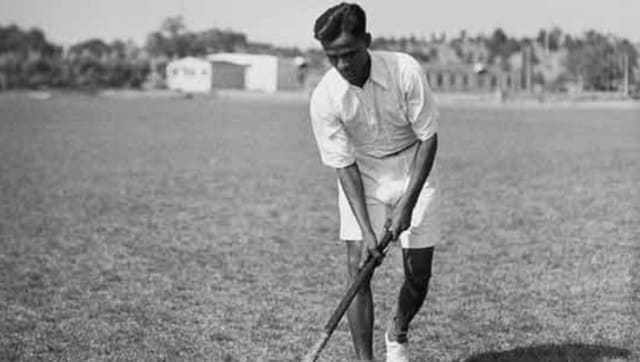
File image of Indian hockey icon Dhyan Chand. Twitter
New Delhi: A docudrama on the early years of legendary hockey player Major Dhyan Chand is in the making.
Producer and enterpreneur Joyeeta Roy and Prateek Kumar Mishra, who have been working on a digital campaign to demand Bharat Ratna award for Dhyan Chand, will work on the documentary, which focuses on the early life and struggles of the hockey wizard.
The producers said they had discussed about the project with Dhyan Chand's son, hockey player Ashok Dhyanchand and had planned to begin shooting in Jhansi and Allahabad in 2020 but the shoot was delayed due to COVID-19 .
The pre-production for the documentary is now set to begin in June with the producers planning to release it on 3 December, on the 42nd death anniversary of the legend.
Dhyan Chand, widely regarded as the greatest player in Indian hockey, earned three Olympic gold medals in 1928, 1932 and 1936. He played internationally from 1926 to 1949 and scored 570 goals in 185 matches.
Dhyan Chand was honoured with the Padma Bhushan in 1956. His birthday on 29 August is celebrated as National Sports Day in India every year.
Firstpost
